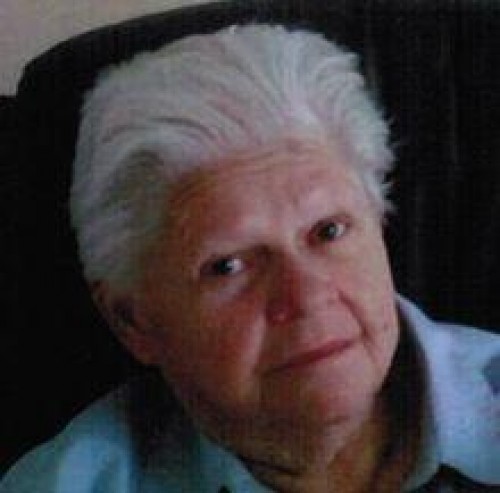
Rena Picou Trevathan
July 12, 2011
Jeanne R. Lefort
July 14, 2011“I don’t think I want to say what I thought,” Teresa Huffaker said with a laugh as she thought of her initial reaction three years ago when her husband, Rodney, who had previously worked in the oil and construction industries, said he wanted to give up a steady paycheck and open his own classic car restoration business.
Now Rodney, Teresa and their son, Scott, successfully operate Road Hog LLC out of a 3,800-square-foot building at 6259 W. Main St. in Houma, and are driving toward a move in August, up the road to a larger site at the former Bayou Cane firehouse, with the addition of another building.
“We will be able to do everything at that one location,” Rodney said about getting a mechanical garage, body shop and showroom more centrally located from their present arrangement. “It will be about four times bigger than this.”
With a constantly moving inventory of muscle cars, hot rods and classic automobiles, the owners and operators of Road Hog travel the country to find unique vehicles and, with use of the Internet, have made sales as far away as Germany and talked deals with clients in New Zealand and Japan. Rodney and Scott agreed that local sales are also welcome.
Early last Wednesday, Ronnie Harvison arrived from Riverview, Fla. to pick up the black on black, loaded, 400 cubic inch V-8, chrome-trimmed 1957 Chevrolet Belaire. Neither he nor Rodney would reveal what price was put on the vehicle, although Internet listings place such a car going for anywhere between $25,000 and $45,000.
“My wife won’t let me get on the Internet anymore,” Harvison said while taking delivery of his new ride.
There are elements that separate a domestic classic from a vehicle that is simply old according to the Classic Car Club of America. One criterion for the documented 1.3 million classic cars across the country involves the number of any given make and model produced during a given year. Packards and Cadillacs account for almost half of all known classic cars in the United States.
A second criterion involves the specific make and model of vehicles built and sold from a list of 37 American carmakers. This commonly includes Buick, Cadillac, Chevrolet, Chrysler, Ford, LaSalles, Lincoln, Packard and Studebaker.
The third criterion involves special considerations and at what age specific states designate a vehicle as being an antique. This age can range from 15 years to 45 years. Louisiana specifies that a vehicle must be at least 25 years old and not altered from its original design to be designated as an antique.
Rodney explained that even an antique might not qualify as a classic car. “It’s not just the age of the car,” he said. “It can be the rarity or it can be like a ’57 Chevy. Everybody has always liked them and probably always will.”
In terms of restoration work and resale, Road Hog has as much variety of circumstance as it does vehicles ready to show and drive. “Not everybody can afford a restored car, but they can have a nice driver quality car and still have fun,” Rodney said.
Mustangs, Camaros and Chevelles have been among the most popular cars the Huffakers have involved in their business. Finding parts for all cars can create unique challenges. Mustangs tend to be among the easiest to get parts. A 1957 Ford Ranchero on the floor would require the making of parts because of its rarity.
“Chevys tend to be the easiest cars to work on,” Scott said as in-house mechanic. “The Fords are a little more complicated and of course your Dodges are the most expensive to work on.”
Road Hog not only restores cars to their original condition. Many times they upgrade the vehicles to include contemporary features and expectations such as air conditioning. “Not everybody wants it back to the original,” Rodney said. “Sometimes they want it modernized. It’s got the original look but a more modern power train. It is becoming more popular to do it.”
There is something about the look of an older car Rodney confirmed. “The color. The shape. Most new cars all look the same front to back,” he said.
“Restoration work is one of those things you got to have a passion for,” Rodney said. “[The work involved and the cost] all depends on what you are starting with. Sometimes there is a car that somebody can bring in that is just not economical to do. Some cars if you gave it to me I couldn’t restore it and make money on it. There are some cars that are the opposite of that.”
Scott noted that in addition to their own work, Road Hog offers a wide range of upkeep products for classic cars.
Rodney said that many people that come into his showroom are looking for a very specific car. They may want the car they had when they were a teenagers, or their first car as an adult. Something their parents had. Sometimes Road Hog customers simply have something catch their eye and they want it. Still, most are very specific.
When fully restored, many classic cars not only bring pleasure to their owners. They can also become good investments. Collectorcarnet.com listed a 1911 Oldsmoble Limited Touring Car that sold at auction for $1.65 million.
History of ownership and documentation add to the value of a classic automobile. For true car lovers, however, no price can compare to the feeling of a perfect fit behind the wheel. For those in the restoration business it is a matter of taking a product and making it as good or better than it was when it rolled off the assembly line.
“[Automobile restoration] is just something I’ve always wanted to do,” Rodney said of the classic car business.
“I really didn’t have any expectations for it,” Teresa said when asked to compare how Road Hog has progressed. She smiled and said, “They’re doing OK.”









